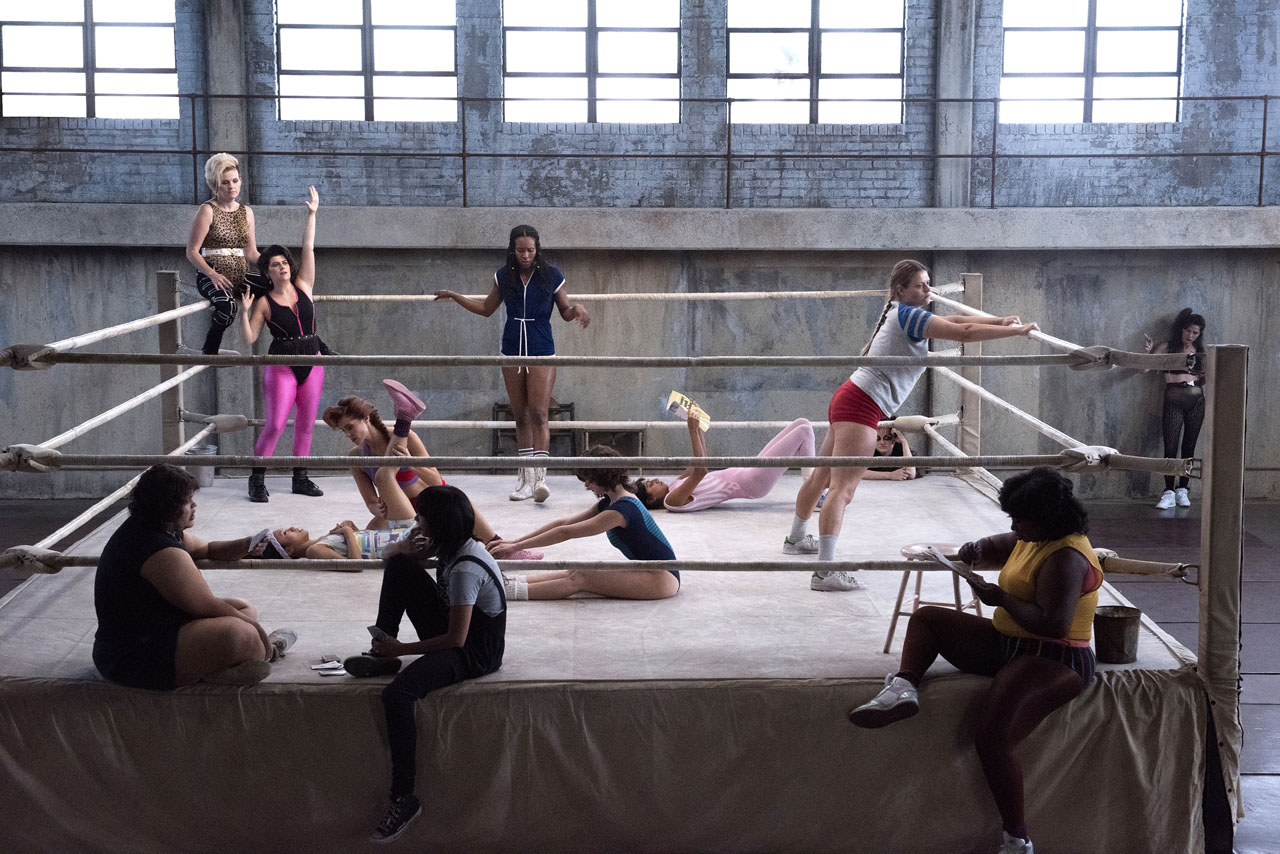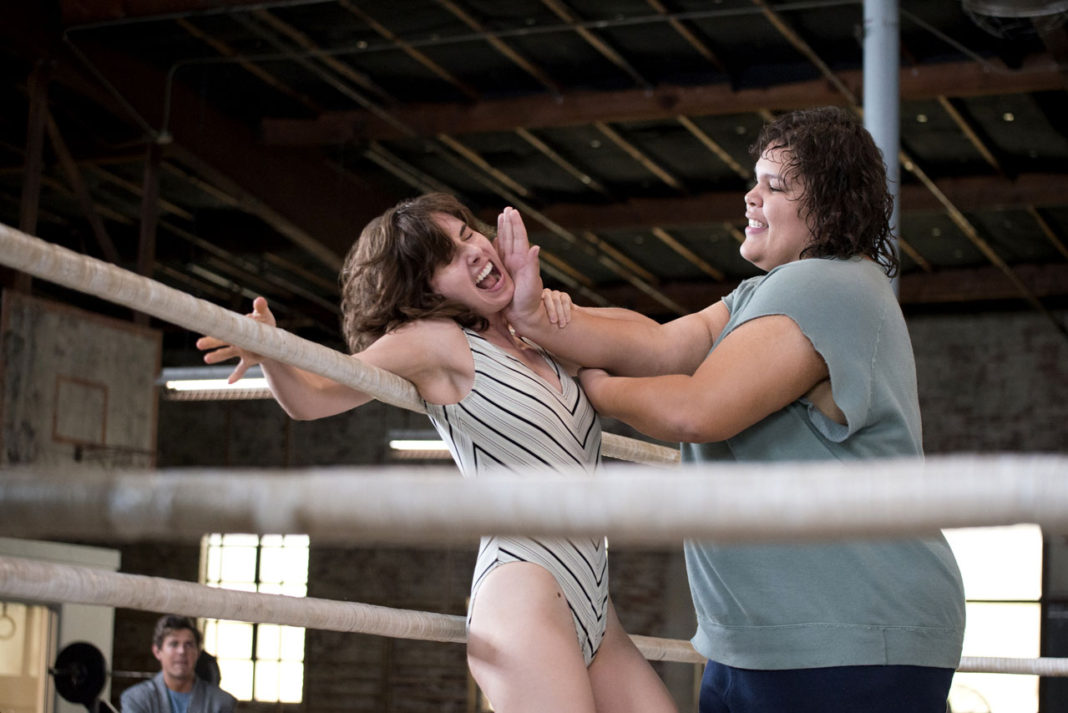Ahead of release, GLOW looked like a mess; a weak trailer that seemed cheesy and completely lacking in self-awareness screamed out ill-tidings for the level of quality that viewers could expect. What seemed like disaster, however, was just a case of poor editing; in reality, Glow was warm, emotive, funny and energetic. Ten half-hour episodes make it a minimal investment for a highly enjoyable experience, not entirely seriousness or clowny.
Here’s where description gets tricky; the title. GLOW is named after the show-within-a-show that the events centre around, Gorgeous Ladies Of Wrestling. 14 actresses are hired as the opening roster for a women’s wrestling show in 1980’s Los Angeles. Hollywood loves to idolize itself, but there is little La La Land-esque adoration for “the magic of film” or anything equally in the clouds. In GLOW’s Los Angeles, the only parts for women on TV are as secretaries and housewives.
Satirical and biting, this setting is picture perfect for a show steeped in obvious feminist undertones. At every turn, a mouthpiece for Reagan’s America laughs at the idea of women’s wrestling, with the performers themselves more often than not among them.

Alison Brie leads the cast as Ruth Wilder, an actress fed up with both the lack of powerful female roles on TV, and her own lack of rent money. Trained, talented, and accordingly self-righteous, Ruth is deeply flawed but unapologetically optimistic. A departure from much of her typecast TV time, Brie doesn’t play strictly bubbly and lovable, but imperfect and searching for redemption.
Marc Maron, of podcasting royalty, plays opposite to Brie as Sam Silvia, the B-Movie director charged with shaping the GLOW into something coherent. Arrogant, teasingly sexist, and coke-fuelled, Silvia is the embodiment of the loudmouthed 80’s Hollywood liberal. Most of the shows best moments are teased out by Maron’s self-aware and self-hating blowhard.
Orange is the New Black, created by the team behind GLOW, took the internet by storm with its clever dialogue, top-notch acting and fearlessness in putting women in the driver’s seat. Recent seasons have lagged in popularity behind the first few, but the notable focus on women of colour is continually lauded, and these influences have not been left behind. Despite travelling back through 30 years of progress in order to represent the period properly, Glow still preaches equality through powerful, ass-kicking women. As a result of the shift to a more conservative society, messages of empowerment shine through a knowingly backwards-seeming society. Forced to adopt racist and stereotyped traits for their wrestling personas, characters are bitingly critical of the absurdity of it all; of course the Cambodian woman becomes “Fortune Cookie” and of course a full-bodied black woman is the “Welfare Queen”. Silvia insists that it is satire that pokes fun at society’s flaws, and the entirety of the cast thinks it is ridiculous; the creators of GLOW in the real world preach a similar message.
While at times jumping the gun with expositionary dialogue, GLOW exceeded every expectation I had for it. I did not want to watch it originally, but am now surprised at how much I want to watch it all again. For someone who grew up watching Rey Mysterio and The Rock, it is wholly refreshing to see the ridiculous medium of wrestling used to right social wrongs, even as the characters doing so mock the concept before the audience has a chance to.
Better than: Most Of the Modern WWE
Not As Good as: Most of the 80’s WWE
You may also Like: Orange Is The New Black































